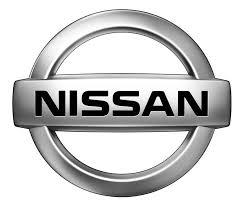Armada 4WD V8-5.6L (VK56DE) Flex Fuel (2009)
_flex_fuel/Page-975003.png)
Removal And Installation
REAR DISC BRAKE
Removal and Installation of Brake Pad
WARNING:
Clean dust on caliper and brake pad with a vacuum dust collector to minimize the hazard of air borne particles or other materials.
CAUTION:
-
While removing cylinder body, do not depress brake pedal because piston will pop out.
-
It is not necessary to disconnect brake hose connection except for disassembly or replacement of caliper assembly. In this case, hang
cylinder body with a wire so as not to stretch brake hose.
-
Do not damage piston boot.
-
If any shim is subject to serious corrosion, replace it with a new one.
-
Always replace shim and shim cover as a set when replacing brake pads.
-
Keep rotor free from brake fluid.
-
Burnish the brake pads and disc rotor mutually contacting surfaces, after refinishing or replacing rotors, after replacing pads, or if a soft
pedal occurs at very low mileage.
REMOVAL
1. Remove rear wheel and tires using power tool.
2. Remove the top sliding pin bolt from the cylinder body.
3. Swing cylinder body open and secure with wire, remove pads, shims, cover and retainers.
INSTALLATION
1. Push piston in using suitable tool.
CAUTION:
By pushing in piston, brake fluid returns to master cylinder reservoir tank. Watch the brake fluid level in the reservoir tank.
NOTE:
Using a suitable tool, makes it easier to push in the piston.
2. Apply Molykote M-77 grease to knuckle slide where brake pad contacts and to the outer multi-layered shim, pad retainers and inner shim.
CAUTION:
Do not get grease on the brake pads or brake rotor friction surfaces.
3. Install pads, shims, cover and retainers to cylinder body.
